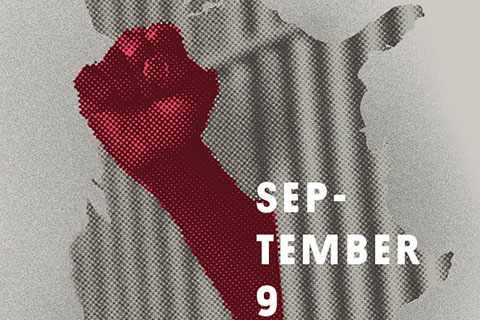
Here are some specific and important things you can do to support the largest prisoner strike in the history of the country with the highest incarceration rate in the world:
1. IWOC hotline: prisoners facing retaliation for strike activities can call the IWOC hotline collect anytime of the day or night at 816-866-3808. Send that number to your inside contacts, or call it yourself if you hear from someone needing help. You can also email IWOC at iwoc@riseup.net.
2. Mobilize legal aid! The National Lawyer’s Guild has offered to file an individual “notice of claim” on behalf of each prisoner against abusive and retaliatory prisons and guards. Filing a notice of claim tells the prison that a suit could be filed and puts them on notice that abuse has happened. *It is not the actual suit*, but it gives violated prisoners time to find local lawyers. Please send details to newjersey@nlg.org and to massdef@nlg.org. Prisoners can also reach out directly to: NLG Mass Defense, 132 Nassau Street, Rm. 922, New York, NY 10038

